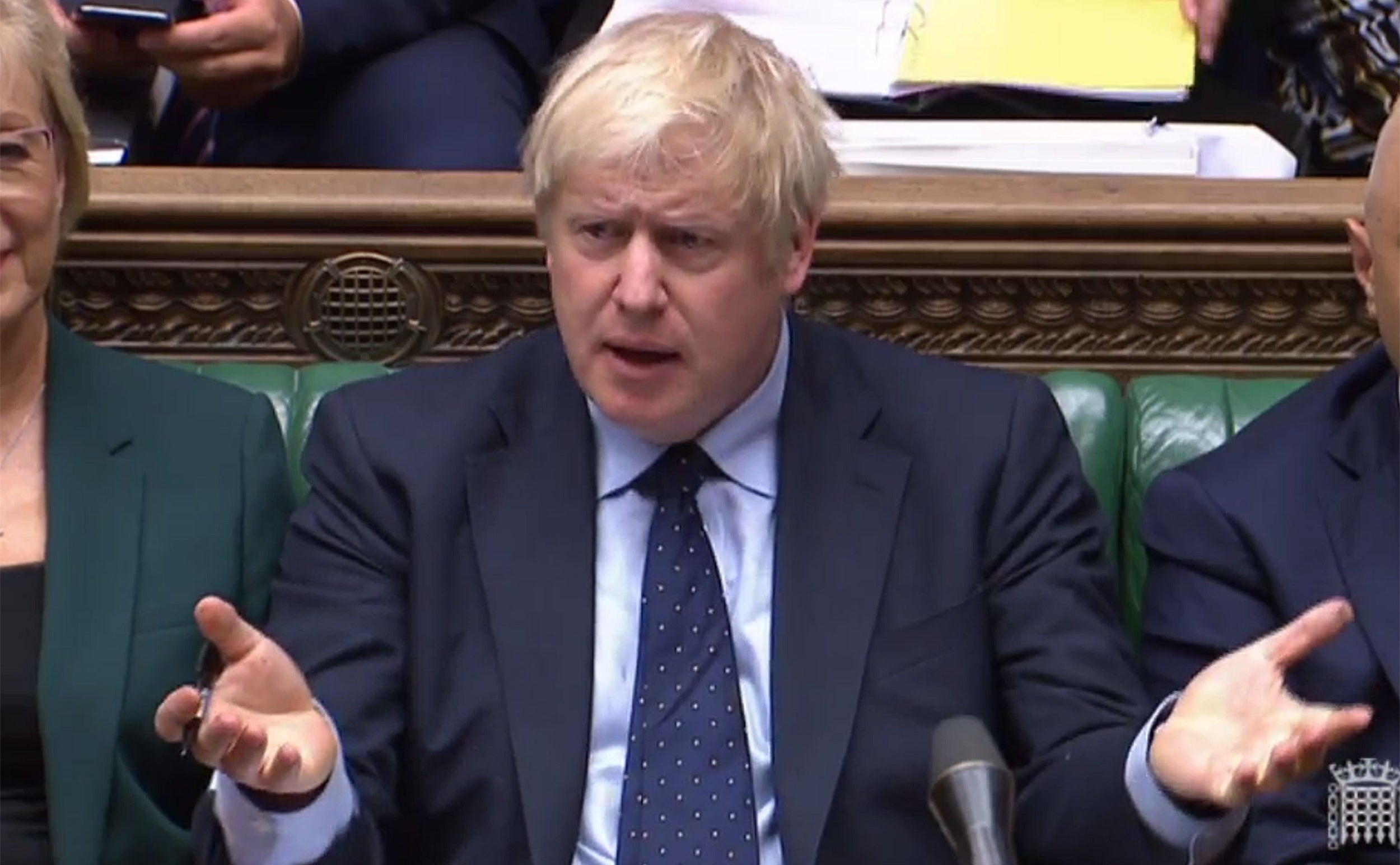Boris Johnson can still be beaten by the opposition – but they have to do these five things first
MPs could easily limit the amount of monkey business the prime minister can get up to over the next few weeks – and ensure Brexit is delayed. But they need to look further than 31 October


After Boris Johnson’s humiliating defeat in the Supreme Court, the opposition should hope for the best but prepare for the worst. A sensible prime minister would cut his losses after being found guilty of unlawfully suspending parliament. But Johnson may go deeper into the heart of darkness as he tries to make good on his pledge to leave the EU “do or die” on October 31.
So it is good news that Jeremy Corbyn is not falling into the trap of holding an immediate vote of no confidence in the prime minister. That could trigger a general election – and, by the time we knew the result, we would be in November. And unless Johnson asked the EU to delay Brexit, we would have crashed out.
The attorney general Geoffrey Cox said today that “this parliament is a dead parliament”. This couldn’t be further from the truth. Parliament is alive and kicking – and has many things it can do to hold Johnson’s feet to the fire. Here are five.
Stop the PM from wriggling out of the “Benn” Act
The Benn Act passed this month requires Johnson to ask the EU for three months’ extra time if he hasn’t got a deal by 19 October. Unfortunately, it has a few loopholes.
One is that the prime minister doesn’t have to ask for a delay if MPs have already passed a resolution agreeing to leave with a deal (see 1(1)(a)). The snag is that to leave with a deal, parliament would also need to pass a law ratifying the agreement – not just pass a resolution. This government is so tricksy that it could go on strike if a resolution passed and refuse to push through the required law – with the result that we would crash out.
Another loophole would occur if Johnson asked for extra time and then did a deal. If MPs approved the deal, he could go back to the EU and withdraw his request for extra time – and again we’d crash out. (See 1(5)).
Yet another weakness is that the Benn Act is silent on what happens if the prime minister refuses to ask for a delay. What if Johnson is prepared to go to prison rather than send the required letter? The courts may instruct somebody else to do so on his behalf. But, if not, we might be heading for the abyss.
So a top priority for Labour and the other opposition MPs is to pass emergency legislation closing these loopholes. To do so, they will need to grab control of the parliamentary timetable, probably next week.
No recess for Tory conference
The government wants Parliament to go on “recess” for a couple of days next week to coincide with the Conservative Party conference. A recess is not the same as a “prorogation”. MPs themselves decide on when to go into recess; prorogation, the power Johnson has just abused, is technically the Queen’s decision as advised by the prime minister.
Wisely, the opposition looks like it will reject Johnson’s request for a recess. This is not because of vindictiveness. It’s because there’s important business to be done in parliament – notably to tighten up the Benn Act.
Johnson has made clear he wants another prorogation so that the Queen can reopen parliament on 14 October. A short suspension of four to six days, in advance of a Queen’s Speech, wouldn’t contravene yesterday’s Supreme Court judgment. So it’s quite possible that parliament will be suspended for the week of 7 October.
The risk is that, if parliament also doesn’t sit for a couple of days next week because of a “recess”, MPs won’t have enough time to pass emergency legislation. So they should say “no thanks” to another holiday.
Find Johnson in contempt of parliament
Just before parliament was unlawfully suspended, MPs passed a “humble address” to the Queen. This instructed the government to divulge messages that advisors, including Dominic Cummings, had been sending around in connection with parliament’s prorogation. The government refused to provide this information.
MPs could now pass a motion finding the prime minister and the government in contempt of parliament. It’s not clear what, if any sanction, they would attach. But it would at the very least amount to a severe bollocking.
What is the PM’s Brexit proposal?
Last week, the government sent three “non-papers” to the EU setting out its proposal for a deal. It banned the EU from publishing these documents.
MPs could pass a new humble address requiring the Johnson to divulge the proposals. That would give parliament the ability to examine whether they are any good. From what has already leaked, they look pretty weak. If the prime minister refused to publish them, he could again be held in contempt.

Even if there’s a deal, Brexit must be delayed
If the prime minister gets a deal at the European Council summit on 17 and 18 October, we’ll still need extra time. The treaty wouldn’t just need to be approved by our parliament. The European Parliament would have to ratify it too. The idea that everything can be wrapped up by October 31 seems fanciful.
MPs could avoid this danger in several ways. The key should be to ensure that parliament doesn’t consider any deal until the prime minister has already requested extra time.
These five things should limit the amount of monkey business Johnson can get up to over the next few weeks – and ensure Brexit is delayed. But MPs also need to be looking beyond October 31. What will they do then?
Corbyn says he will want an election. But that isn’t wise. It’s not just that Labour isn’t in great shape to fight an election as a result of its internal divisions. The issue of what happens with Brexit shouldn’t be muddled up with the question over who should run the country. Far better to have a Final Say referendum first – and only then go for an election.
Hugo Dixon is chair of InFacts and deputy chair of People’s Vote
Join our commenting forum
Join thought-provoking conversations, follow other Independent readers and see their replies
Comments
Bookmark popover
Removed from bookmarks